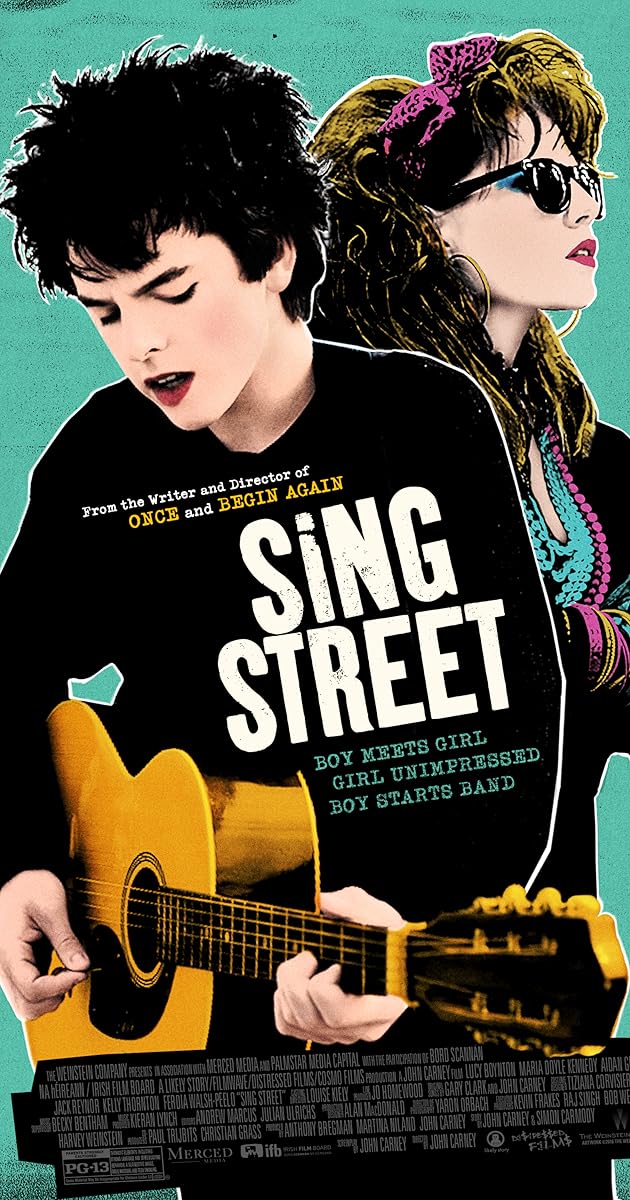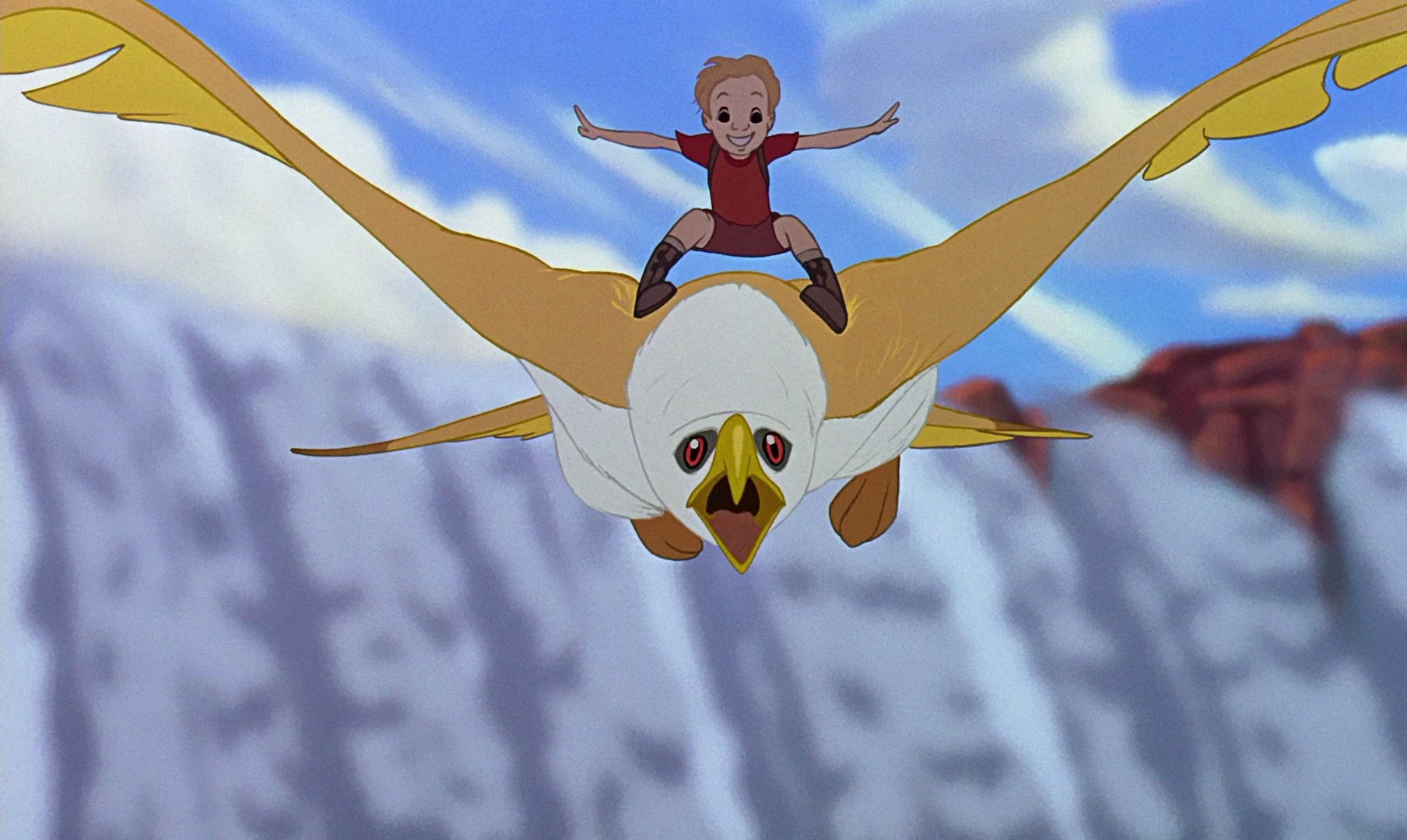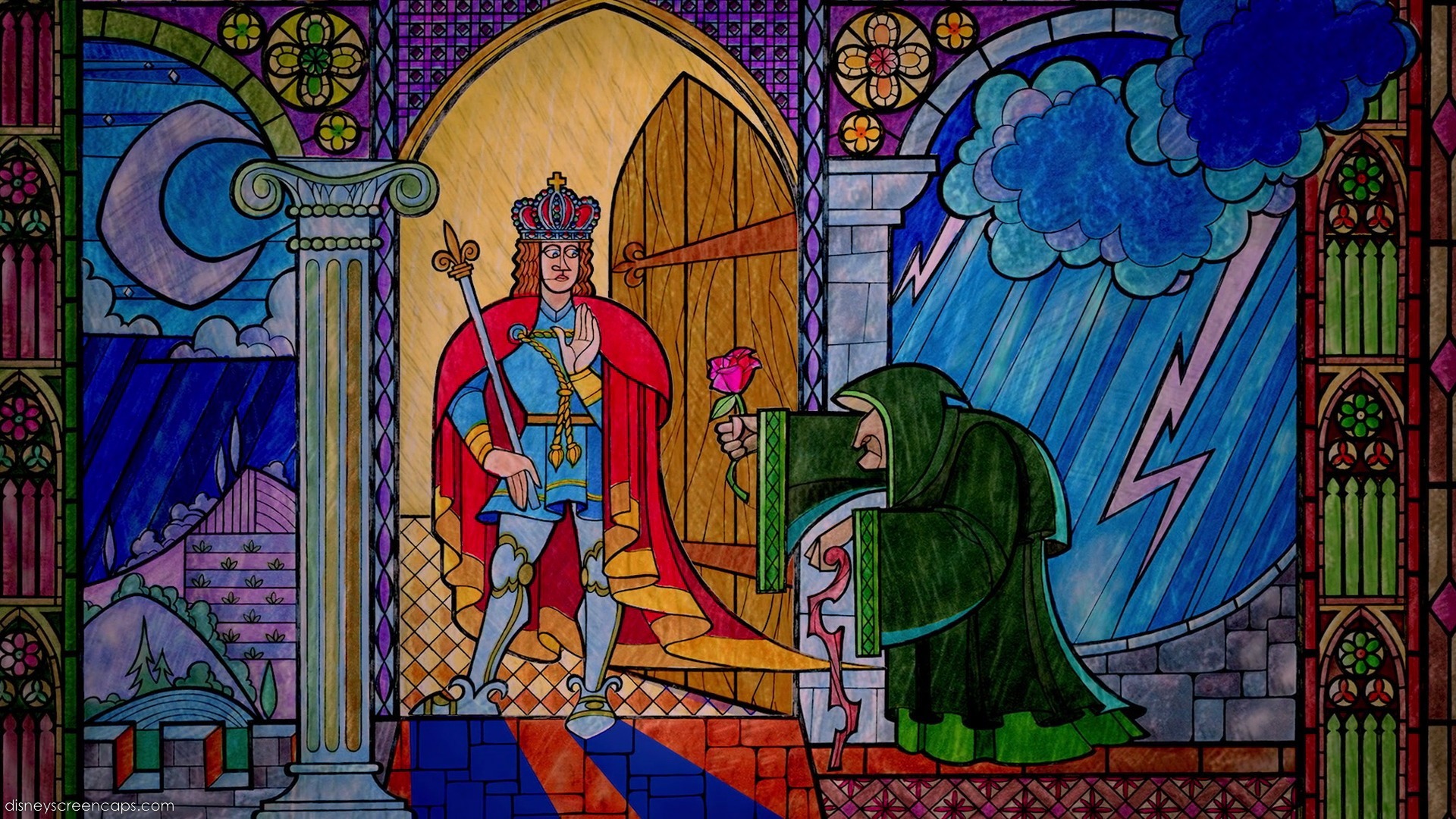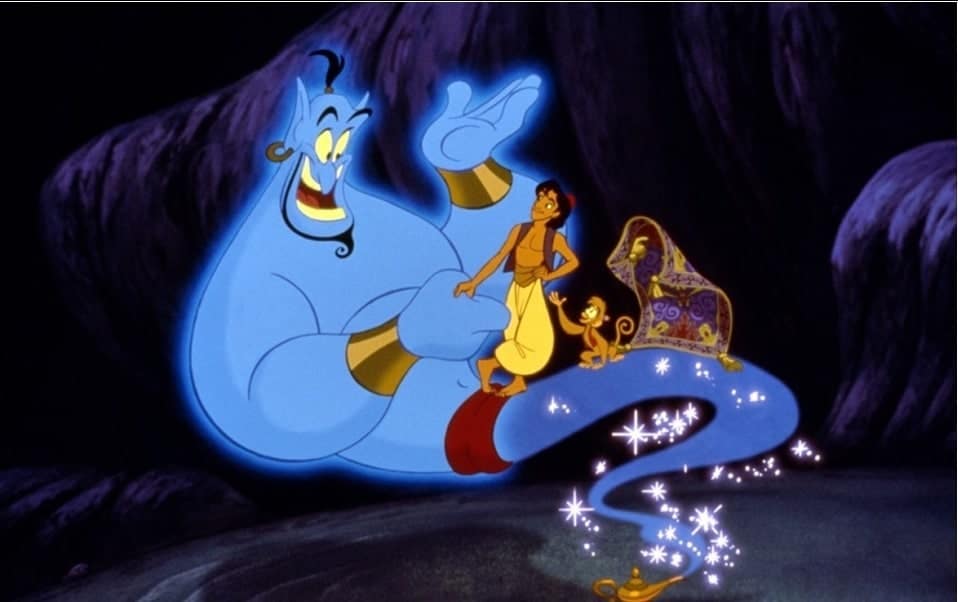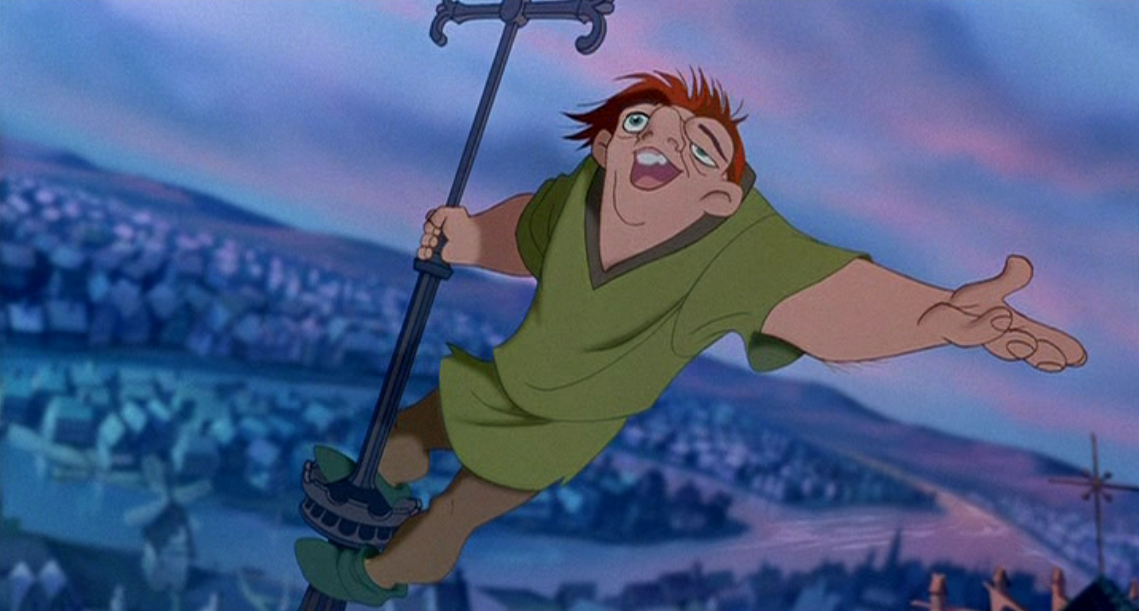NOTE: This was originally written during the great "Polar Vortex" Blizzard of 2014. That was a crazy one. Everything buried in snow and constant sub-zero temperatures. People were throwing boiling water into the air and watching it turn to to snow in mid-air. We get winter in Central-Illinois, but not like that...
I was a teacher at the time, and found myself with an abundance of free time due as a result (It was at least a full week of snow days, and I think more than that. I had seen Frozen earlier that school year and had been blown away by it, seeing it as a huge return-to-form for Disney; on par with the films I had grown up with. That got me interested in Disney as a whole, and I decided to spend a large portion of those days off reading about Disney and classic animation, and ultimately doing a marathon of the "Disney Renaissance" period of films and writing this about my impressions from said marathon.
ALSO! I didn't originally provide any reference or explanation for what the "Disney Renaissance" actually is. So, a quick primer:
The Disney Renaissance: A Primer
The "Disney Renaissance" is a period in the history of Disney Feature Animation lasting from 1989 to 1999 (Little Mermaid to Tarzan). It's famous because it's basically the period where Disney got their shit together again and decided "We're gonna pump out some fucking classics". You see, while Disney was a legendary animation studio that basically made animated movies a thing to begin with, and made a string of classics in the 40', 50's and early 60's, but in 1966 Walt Disney died and ended up frozen in carbonite beneath the Pirates of the Caribbean ride at Disney World, and Donn Tatum, Card Walker, and Ron Miller ended up taking over the company and their movies just weren't as good after that. I mean there's some ok stuff in there, but not like the classics. The movies during that period were far less commercially successful too. The failure of those films came close to causing Disney to shut down it's animation studio entirely.
But then, at the end of the 80's, Disney came roaring back. They got some new blood in there, started experimenting with new animation techniques. They returned to the sorts of stories the studio had been working with during it's heyday, and also experimented with their films taking the form of movie-musicals and had an incredible amount of success at it. Many of the songs from these films are classics nearly universally known today. The films released during this period were all incredibly successful, commercially and critically. It's hard to imagine a kid who grew up in the 90's who didn't watch these endlessly.
And returning to them as an adult, I found they mostly held up.
Below, the original piece:
Quick Reviews from my epic "Disney Renaissance" movie marathon (Also, Frozen)
I meant to post this much earlier, so I apologize for anyone who was looking forward to reading it. I found myself with a lot of extra time due to our overabundance of snow days, which is why I was able to watch all these films to begin with, but then the snow stopped and I had to get back to work. Anyway, here it is. My reviews of every film from the “Disney Renaissance” period, plus a review of their newest film,
Frozen, because that's what inspired all of this in the first place. Now, these are very quick-hit reviews, mind you; just basic impressions. If you want beautiful prose and incredible insight, give me a bunch of money so I can quit my real job. Anyway, enjoy.
Little Mermaid (B+)

The Little Mermaid is the clear starting point for the Disney Renaissance, and it really sets the standard that the rest of the films mostly follow. It's traditional 2D animation, like all of them are (we would see computer generated imagery sneak into these films more and more as the decade wore on, but you don't see that here). A romance between the two main characters is central to the plot (a few of these didn't make romance quite as central, such as the Lion King or Hunchback of Notre Dame, but it's always present). It has a cast of anthropomorphic side-kick characters for comic relief, a clearly evil villain, it resides in the fantasy/adventure genre, and most importantly, it's a musical. Disney hadn’t' really done a musical for a good long while before The Little Mermaid, and I think that aspect of them is a major part of their popularity. The music in most of these films is very, very good and the musical sequences tend to be the most memorable. This is certainly true of The Little Mermaid, which has some great stuff (“Under the Sea” is a classic, and “Part of Your World” is as well. “Unfortunate Souls” was the big discovery for me though, as I'd completely forgotten it.)
The Little Mermaid also has one of the best side-characters in the form of the long suffering Sebastian the Crab, who pretty much steals the movie. I love everything he does, especially the scene where he nearly gets cooked. Additionally, the animation is beautiful and the story is nicely paced (I'm a sucker for snappy pacing). All of the early movies on this list do a great job at starting the film and drawing the viewer into their world. I found the very non-fantasy prologue, with the sailors debating the existence of Mermaids capped off by the camera's descent into the depths and the reveal of the underwater Kingdom to be a really effective sequence.
Unfortunately, I think the movie kinda loses steam a bit once Ariel actually goes to the surface. It's still quite enjoyable, but we have a problem when our heroine dreams of going to the place that is clearly not as interesting as where she already is. Also, Ariel is basically a huge stalker. She falls madly in love with the first guy she sees, and I”m really not that sure what Prince Eric sees in Ariel other than her being pretty. I guess they 're perfect for each other (and does he like the fact that she can't talk? What does that tell us about him?).
Rescuers Down Under (C+)
Rescuers Down Under is definitely a lesser film on the list, but it also REALLY doesn't feel like it fits on the list. It feels like a leftover from Disney's 80's output that just happened to come out after
The Little Mermaid, where the Disney Renaissance really began (I wouldn't be surprised if this wasn't literally the case, that both were being made a the same time and the success of Mermaid was a clear indication for Disney of the direction they needed to go in. I.e., a direction that led away from a film like Rescuers) . For one thing, it has a slightly more realistic approach to its story (slightly). It does have something of a romance plot, but it's more of a subplot and really just a running joke where Bernard keeps getting foiled in his attempt to propose to Bianca. But most of all, it's not a musical. Most of the other films on this list basically seem built from the ground up to be adapted into a Broadway Musical (and several of them were!), which results in a completely different feeling and style to those films, a style which
The Rescuers Down Under completely lacks.
It also has a lot of issues. I think it's pretty slow, and the titular Rescuers seem to barely matter to the movie until pretty late in the game (I still have full confidence that the kid they're supposed to be rescuing would've done just fine on his own). There are plenty of fun moments in the movie, but for the most part it seems to be spinning its wheels a lot. I also find it lacking in the comic relief department, although I did get a kick out of Joanna the Goanna, who was pretty much my favorite thing about the movie (although she's a completely silent character).
Also, the movie opens with a really spectacular flying sequence. I think this is what most people probably remember about the movie, although it does smack of the animators just kinda showing off. However, they certainly have something to show, so good on them. But for the most part, the movie kinda goes downhill from there.
Beauty and the Beast (A+)
I think the next three films are when the Disney Renaissance really hit its stride (before somewhat losing it's Mojo for a while until Mulan). It's really hard for me to pick a favorite between them (frankly, ranking my top four, BatB, Aladdin, TLK, and Mulan, at all is really hard). I certainly wouldn't argue with anyone who said Beauty and the Beast is the best work Disney Animation ever did (Ok, no. I would. Because Pinocchio is a thing that exists. A close contender for my favorite animated film ever). Again, fantastic opening. The prologue detailing the Beast's back story is incredibly beautiful, visually and aurally (The music does basically rip off Carmille Saint-Saens “Aquarium”, but whatever, it works). Beauty and the Best has one of the best soundtracks on the list, both in the context of the film and simply as songs to listen to whenever you feel like it.
It's also incredibly well paced, pretty (first hints of CG in the dance scene), shifts very, very effectively between moods, has one of the largest and most consistently awesome cast of characters (even the head of the insane asylum, who I'm pretty sure only has one line, is very memorable). Lumiere and Cogsworth are models for the comedic-sidekick role (and man,.. Lumiere. Great name. For you non-film nerds it's a reference to the Lumiere brothers, without whom cinema as we know it might not exist...It also refers to the fact that he's a freaking candlestick).
I really don't have any complains about Beauty and the Beast. It's a classic for a reason.
Aladdin (A)
Once more, from the top! Gushing review! Beautiful animation (more and more CG creeping in)! Great music (“A Whole New World” is one I'm somewhat sick of, but I love the rest of the soundtrack). A fast paced story that shifts effortlessly between horror, drama, and comedy. The amazing work of Robin Williams as The Genie. It's all great, great stuff. I think the film's climax drags on ever so slightly, but maybe I'm just looking for nitpicks to justify why I like Beauty and the Beast and The Lion King slightly more. Aladdin is an embarrassment of riches, and that leaves me without a lot to say about it (not without going into full-blown commentary mode and breaking it down scene-by-scene anyway, which I COULD do, given the time. That alone indicates it's quality).
The Lion King (A+)
Hamlet was a pretty good play. Replacing the characters with Lions doesn't hurt it. I think on a pure plot level, the Lion King might be the best of the pack here (it's slightly more complex anyway). The whole romance thing is not unimportant to The Lion King, but the movie is much more about Simba's internal conflict and I find that more interesting (if I want to think about girl problems I'll just fucking get out of bed in the morning, thank you). The story is told with drama and gusto and the voice-cast really nails it across the board.
Also, I think it has the best soundtrack of any of these films. The orchestral score is really, really good (Unsurprising, as it was one of Hans Zimmer's earlier works) There are themes in the score that I find just as memorable if not more so than the various show-tunes on display, which is saying something because the musical numbers in The Lion King are fantastic and some of the few Disney songs I listen to on their own (partially because I think Elton John is the shit). We all remember "Circle of Life", "Be Prepared", "Hakuna Matata", or "Can You Feel the Love Tonight", but I remember Zimmer's "
This Land" just as strongly.
Another fun fact for those who want more: Elton John and Tim Rice collaborated again on “The Road to El Dorado”, a very good non-Disney animated film, which was ALSO scored by Hans Zimmer, this time with John Powell (who has gone on to compose scores far better than anything you'll find on this list)
Pocahontas (C)
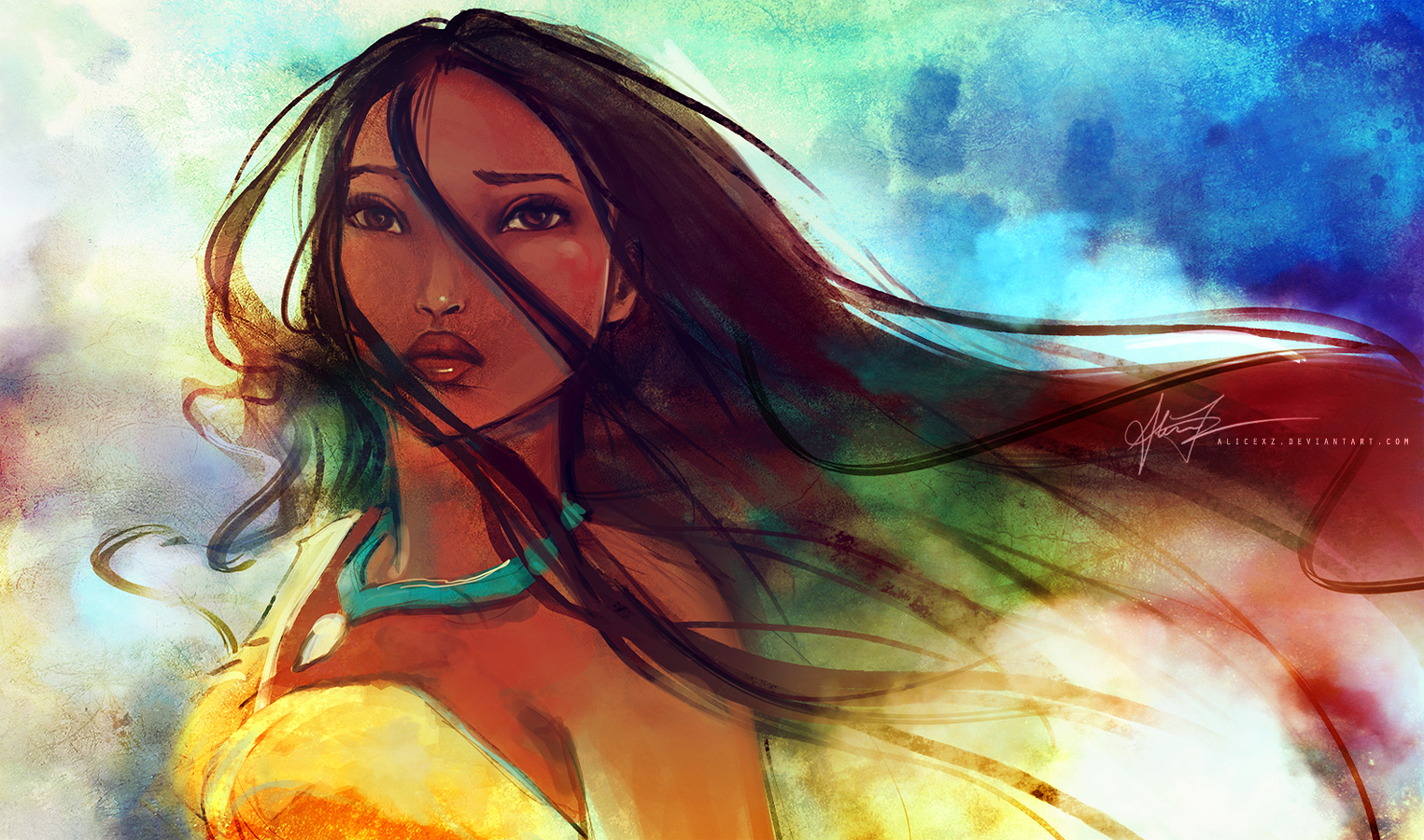
None of the Disney movies are fantastic examples of how to handle issues like race and gender, but it feels a bit more problematic in Pocahontas, partially because nobody could've know at the time that having Mel Gibson voice John Smith would eventually make everything he says seem EXTRA RACIST, but also because it deals with that stuff more directly. It definitely makes the bad guy really racist, as though to say “Hey! Check it out! We think racism is bad!” , but at the same time the whole movie is depicting Native Americans as though they're basically Elves a la Lord of the Rings. But the movie was sorta spawned from Disney Animation's desire to do a Romeo and Juliet type story, so if we just judge it as that...Ok, you know what? That actually doesn't help it either. I think John Smith and Pocahontas's relationship is astonishingly thin considering its the whole fucking point of the movie. It's based on nothing, and doesn't fucking go anywhere anyway. The damn movie ends with the dude sailing away! “See ya, Indian chick. That was a crazy week, huh?”
I also don't really like the animal side characters. They bore me. A lot of the imagery is quite pretty though. “Colors of the Wind” is a nice song I guess, but again: Native American's weren't fucking magic! (in fact they were a lot more "modern" and sophisticated than Europeans in many ways. Read some real history).
The Hunchback of Notre Dame (B+)
I was really excited for this one, because I barely remembered it at all.
Hunchback and
Hercules were the two films on this list that I saw in the theater and I'm pretty sure I haven't seen since, so I was coming at them pretty fresh.
The Hunchback of Notre Dame gets off to a good start. The opening song “The Bells of Notre Dame” does a really great job of setting the tone of the film and that (much darker, comparatively) tone is one of the films strengths. This movie really embraces the darkness, although I wish it weren't so afraid of seeming like a criticism of the Church. The villain, Frollo, is downright sadistic (he burns a family alive at one point) and his presence really heightens the drama and sense of danger. The movie is also visually spectacular, continuing Disney's experimentation with CGI and the "camera movements" that allows them to make.
However, I felt the movie also had some flaws. Some of the character development seems a bit sloppy (Frollo's lusting after Esmeralda seems to come out of nowhere) and it bothered me that they seemed to be setting up Esmeralda as a love interest for Quasimodo (as if to say “Hey Kids, see! Looks don't matter! Find someone who appreciates who you are on the inside!”) only to have her run away with the conventionally good looking Captain of the Guard character. Maybe I'm misinterpreting what the message of the movie was supposed to be, but that's what I thought it was going for and this seemed to undermine it. Also, I don't find much of the music to be very memorable. The best song is “Hellfire”, which is great in the context of the movie, but nothing I would listen to outside of the film (I can't even really remember how it goes to be honest. Doesn't stick in the brain that way).
Hercules (B+)
Going into this, I expected Hercules to be the low point on the list, but I ended up being very entertained by it. It's definitely not perfect. It takes a while to get going, and it just isn't as tight a film as it should be, but it never gets too boring even if a lot of story just seems to exist to create big setpieces. I also think the music is mostly just serviceable. Not bad while watching it, but I can't really remember any of it right now.
On the flip side, James Woods is a great villain as Hades, and easily the funniest of the Disney villains. Another character that I really enjoyed was Meg, who is a pretty unique female character for Disney (she was apparently inspired by women in screwball comedies from the 40's, and that works really well in this context somehow). Hercules is more of an action film than a lot of the others (except Tarzan) and the action is mostly quite well done. The movie isn't one of Disney's best, but it gets the job done.
Mulan (A+)
As I said before, this is one of my favorites.
I don't feel qualified to comment on Mulan's depiction of Chinese culture, so I wont. Regardless of the “accuracy” of the culture represented, the film effectively establishes that culture and uses it as a springboard for the central drama of it's story. Mulan struggles to live up to the expectations set for her as a daughter, so when her father is summoned to war, Mulan pretends to be a boy and takes his place, going on a wonderful and dangerous journey where she finally makes her family proud bla bla bla you know the story. Point is, it's really well done.
It checks off all the Disney boxes with style..The animation is great. All the character designs are excellent and the action is really well done. The voice cast is solid, with Eddy Murphy doing a fine job as the comic relief character, Mushu, who is possibly my favorite comic-releif side character with the possible exception of The Genie (and those are the two who get actual subplots.). The story seems perfectly paced to me. It knows when it needs to zip along and when to linger and exactly when to shift between comedy and drama. It's also chock full of great visual moments. Furthermore, I think it has one of the best soundtracks of these films, right up there with “The Lion King” and “Beauty and the Beast”. Let's review: “Honor to Us All” “Reflection” “A Girl Worth Fighting For” , and my favorite “”I'll Make A Man Out of You”, which is a favorite drinking song among the weirdos I hang out with.
Tarzan (B-)

Tarzan is considered the last of the “Disney Renaissance” (after that you got “The Emperor's New Groove” which had a very troubled production and was a departure in style, such as not being a musical, and that was followed by a bunch of bombs) and it's still a good one, although I can see the cracks starting to form. Biggest issue: Phil Collins. I like “You'll be in my Heart” which won an Oscar, but I think I would've liked it more if Glen Close sang the whole thing in the movie, instead of doing a few lines before Collins takes over (Elton John's version of “Can You Feel the Love Tonight” is awesome, but it isn't used in the actual movie. They should have taken the same approach). I don't know if the producers were just huge Genesis fans or if Phil Collins was just trying to steal the show, but I feel like there's way too much of him. I partially just don't like his voice, but I don't feel that a lot of the music is up to it either. For example, the montage where we see Tarzan grow up is wonderfully animated, but I don't feel like the song that is used there (“Son of Man”) lives up to the spectacle on screen, and thus detracts from the sequence. Still, a lot of the movie is really great. There's a lot of action and all of it is really cool to watch. Tarzan is probably the movie where the mix of hand-drawn animation and CG feels the most natural (probably due to their “Deep Canvass” technique. Look it up).
Update: Phil Collins did write
In The Air Tonight, one of the greatest fucking songs ever. So you can't completely hate him.
Frozen (A+)
Frozen was the movie that inspired this marathon to begin with, so I might as well review it as well. Plus, I think it really fits in with the rest of these films. Aside from the fact that it uses 3D animation, it feels like a Disney film that was left over from the 90's and just happened to come out in 2013 by some accident (and indeed, Disney has been trying to make
Frozen for years). It shares most of the same characteristics as those other Disney films, particularly the musical aspect. Just about every song in the film feels like an instant classic to me, particularly “Let It Go”, which I predict will deservedly win the Oscar for Best Song this year and which I personally feel is just as good if not better than any song Disney has ever done.
Frozen has a great story, moves at a really fast pace, and is full of great characters. My favorite, Olaf the Snowman (voiced by Josh Gad) absolutely steals the show. Every single line out of his mouth is laugh-out-loud hilarious and I even find the design of the character to be so funny that sometimes simply framing him a certain way in a shot was enough to make me laugh.
But perhaps the biggest joy of
Frozen is how it toys with convention and deliberately comments on how Disney has traditionally handled it's female characters. This film absolutely passes the Bechdel text. It sets up romance sub-plots but does so either to subtly criticize how other films handle such stories or to gleefully ignore them. I don't want to spoil anything, but the ending makes it very, very clear that this story is about a relationship between two sisters, and any romancing that may happen is just another thing in the background. Also, I think the central conflict in the story (the Queen has magic ice powers that must be kept secret) can easily be read as a metaphor for sexuality (or perhaps just supposedly “deviant” behavior in general).
All in all, I found
Frozen to be an incredibly ambitious film that not only lived up to its ambitions and did so while also delivering a traditionally entertaining adventure in the classic Disney style. I recommend it to anyone with a functioning soul. Frozen is the sort of movie that transcends all the tangible, bullet-point listable things a movie can do well (and which I have enumerated above) and just offers up a wonderful experience that makes you fall in love with it's world and it's characters so much that you finish it and immediately want to spend more time with them. That's the experience I had, and subsequently spent 4 more viewings trying to relive. I hope you have that experience as well.
Just for fun, whats your favorite:
- Villain from a movie on this list?
- Hero from a movie on this list?
- Comedic Side-character?
- Song?
